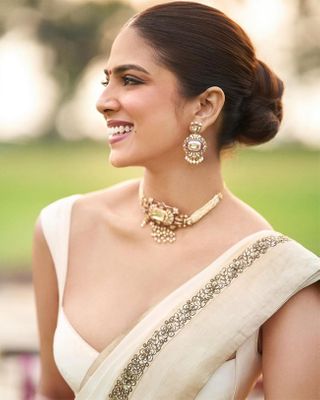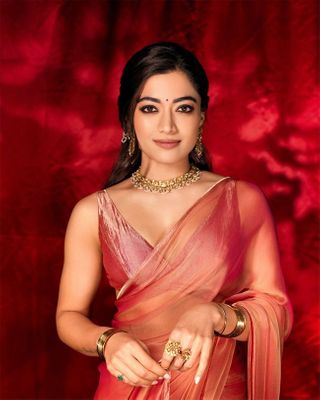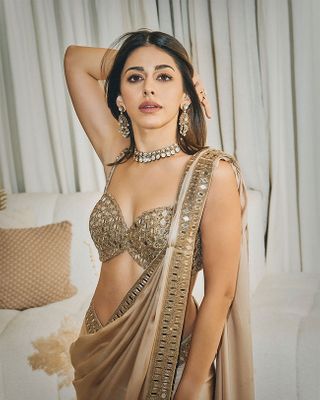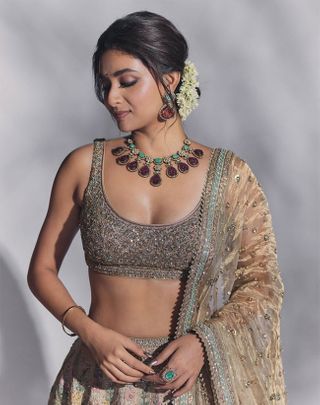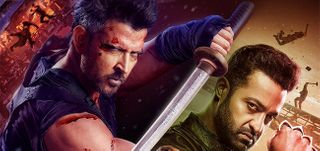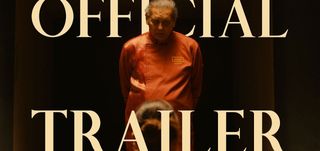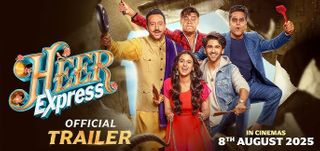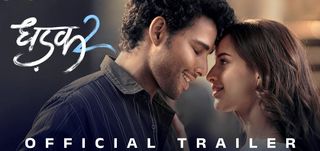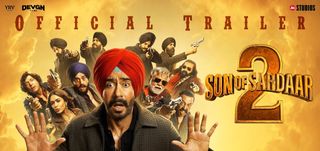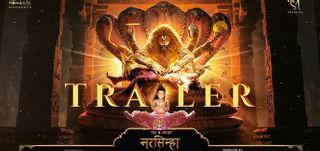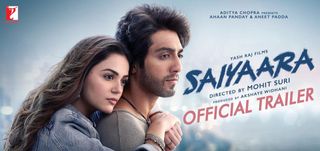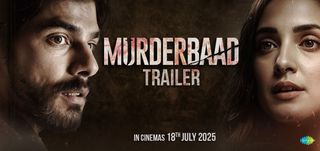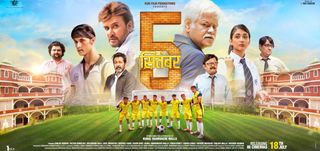
Dil Dhadakne Do Movie Review
Father Mehra and Mother Mehra are coming up on 30 years of marriage, but their relationship is actually a sham, a pretend-marriage for the benefit of maintaining appearances. Father Mehra's multi-million dollar business is also going bankrupt. So, Father Mehra wants Son Mehra to marry rich friend's daughter for a business opportunity, but Son Mehra falls in love with a woman who's a potent combination of dancer and Muslim. Parents Mehra also want Daughter Mehra to give up the preposterous idea of divorcing her husband simply because she isn't happy and compatible with him and is still in love with her ex-lover, who's now an international journalist.
To commemorate their 30th anniversary, Parents Mehra take extended family and friends on a two-week cruise holiday, where things start to unravel once lovers among warring factions, psycho aunties, drunk uncles and heart conditions are thrown into the midst. Or something like that is what forms the crux of director Zoya Akhtar's third directorial outing, the multi-starrer thinking-dog film Dil Dhadakne Do.
Zoya as a storyteller has the uncanny ability to tap into human emotions and thoughts - thoughts that are actually going through our minds, not the ones we let on - with the ease of spending a day at the beach on a Sunday. She has the capability of making us chuckle at our own naivety and superficiality and our other socially-prevalent-but-morally-incorrect behavior, a difficult task considering an audience full of self-righteous and easily-offended pricks. But her narrative style is like that friend, who's soothing voice and non-judgmental nature makes you feel okay about fessing up to your deepest and darkest insecurities.
So, when Father Mehra repeatedly goes on a rant about how he made millions out of nothing or forbids Daughter Mehra from being the first person in their family to go for a divorce, you're reminded of your autocratic and patriarchal father. When Mother Mehra goes on an eating binge on seeing Father Mehra flirting openly with a foreigner or tries to impose her wishes upon Children Mehra's love lives, your mind instantly goes to your hardened-by-time and meddling mother. Or when Daughter Mehra is struggling with her feelings for ex-lover journalist man and Son Mehra is struggling to wriggle out from underneath Father Mehra's thumb, you reminisce about you or your sibling having gone through the same things at one point of time or the other.
If all that weren't enough, Zoya and her writer pal Reema Kagti also take it upon themselves to deliver multiple social messages, most prominently about attaining your freedom from oppressive parents, suffocating marriages and unhappy jobs. There are moments where you fear there may be too many subplots and characters and social conventions for Zoya to be able to tackle in her own exploratory fashion, even with the film's exorbitant 170 minutes running length.
But time flies by when you feel you're in the company of family, of people you've known your whole life. Zoya is masterfully able to detail and flesh out her characters - not just the main cast, but even the fringe characters in play - in her insightful, slice of life manner without giving the impression of cramming. Sure, sometimes you feel that each character has been given a particular trait just to serve the larger purpose of the screenplay, but Zoya gives her actors enough freedom to let them make their parts their own.
But despite all their insight into the hearts and minds of their audience, Zoya and Kagti forget the most fundamental rule of human nature: people never change. They might appear to have changed, they might even make themselves think that they've changed, but people never really change when they're put to the test. Zoya and Kagti, unfortunately, go in the complete opposite direction to serve their characters with their happy endings. Literally every single person on the that cruise has a cathartic change of heart for the better, and they immediately start apologizing and atoning for their past mistakes.
Zoya might be a talented storyteller, as she proved with her debut Luck By Chance and for the majority of the duration in Dil Dhadakne Do. But she's also trapped somewhere between her altruistic style and the trappings of commercial cinema. She wants to make films with a difference and films that could make a difference at a personal level, but she's also too afraid to completely step out of the audience-pleasing, commercial space that she found herself in with the slip-up that was Zindagi Na Milegi Dobara. Sure, I could blame the game and not the player for giving in to Bollywood conventions, but the chaotic and naive finale definitely feels like a cop-out in a film that repeatedly preaches about letting go and breaking away from set expectations.
Having said that, Dil Dhadakne Do still remains a departure from your typical family dramedies for the most part. Its voice over narration by a dog (voiced by Aamir Khan, instead of plain barking) appears gimmicky at first, but ends up being effective. The film (and the cruise) looks gorgeous, and the camera work by Carlos Catalan is top notch, especially brilliant in the phenomenally filmed one-shot video of Gallan Goodiyaan. The editing by Anand Subaya and Manan Mehta is pretty seamless too. And after long last, Shankar Ehsaan Loy deliver a catchy, foot-tapping soundtrack that adds a certain value to the proceedings.
The film's ability to convince the audience is helped along by its performances. Considering the candid nature of the film and the comfort level required between actors to pull off that high degree of closeness on screen, each performance starts off a little edgy and uncertain, especially Anil Kapoor's. But his performance, as the head of the Mehra family, is the one that also gains the greatest ground as the film goes on. He is comical during the film's lighter moments, but fierce and angry when required, saying a lot with his eyes.
His on-screen wife Shefali Shah gives probably the best performance of the film as the most layered character of the film. Like most mothers and wives, Mother Mehra too is one unpredictable lady, with a difference stance on every single issue, and Shah owns her character's flaws like a pro. Priyanka Chopra and Ranveer Singh are pretty effective too, particularly Priyanka in the film's emotional moments. Both of them surprise with their mature acts and their shared sibling chemistry.
Anushka Sharma, as Ranveer's love interest, is used as more of a springboard to bounce Son Mehra's insecurities off of, but she plays her part well. Farhan Akhtar and Rahul Bose, as Priyanka's love interest and husband respectively, are both wasted in their faux-serious roles that fail to capitalize on their inherent charm and comic timing. Vikrant Massey and Ridhima Sud are entertaining in their parts, and so are the huge number of uncles and aunties on the cruise.
Dil Dhadakne Do might be a flawed family drama, but the flawed family at its center is so relatable and the issues that it confronts are so relevant, that you're willing to forgive Zoya Akhtar for her many missteps in the last half hour. Crazy characters, enjoyable music, the sweet sense of familiarity, and tons of fodder - for the oppressed aunties in the audience to nod their heads in agreement, self-absorbed uncles to feel offended and teenagers to feel rebellious - are enough to make this cruise trip a fond if bittersweet memory.






